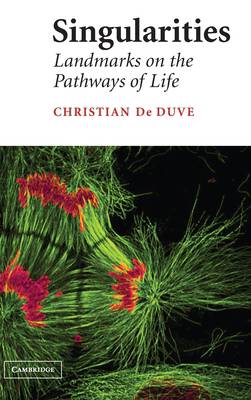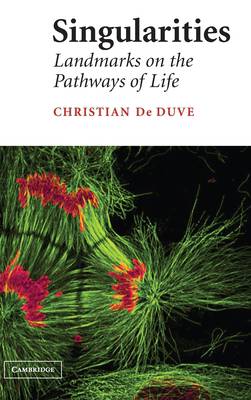
- Afhalen na 1 uur in een winkel met voorraad
- Gratis thuislevering in België vanaf € 30
- Ruim aanbod met 7 miljoen producten
- Afhalen na 1 uur in een winkel met voorraad
- Gratis thuislevering in België vanaf € 30
- Ruim aanbod met 7 miljoen producten
Zoeken
€ 86,45
+ 172 punten
Omschrijving
Erwin Schrödinger's What is Life? published 60 years ago, influenced much of the development of molecular biology. In this new book Christian De Duve, Nobel Laureate and pioneer of modern cell biology, presents a contemporary response to this classic, providing a sophisticated consideration of the key steps or bottlenecks that constrain the origins and evolution of life. De Duve surveys the entire history of life, including insights into the conditions that may have led to its emergence. He uses as landmarks the many remarkable singularities along the way, such as the single ancestry of all living beings, the universal genetic code, and the monophyletic origin of eukaryotes. The book offers a brief guided tour of biochemistry and phylogeny, from the basic molecular building blocks to the origin of humans. Each successive singularity is introduced in a sequence paralleling the hypothetical development of features and conditions on the primitive earth, explaining how and why each transition to greater complexity occurred.
Specificaties
Betrokkenen
- Auteur(s):
- Uitgeverij:
Inhoud
- Aantal bladzijden:
- 274
- Taal:
- Engels
Eigenschappen
- Productcode (EAN):
- 9780521841955
- Verschijningsdatum:
- 24/10/2005
- Uitvoering:
- Hardcover
- Formaat:
- Genaaid
- Afmetingen:
- 164 mm x 236 mm
- Gewicht:
- 576 g

Alleen bij Standaard Boekhandel
+ 172 punten op je klantenkaart van Standaard Boekhandel
Beoordelingen
We publiceren alleen reviews die voldoen aan de voorwaarden voor reviews. Bekijk onze voorwaarden voor reviews.











